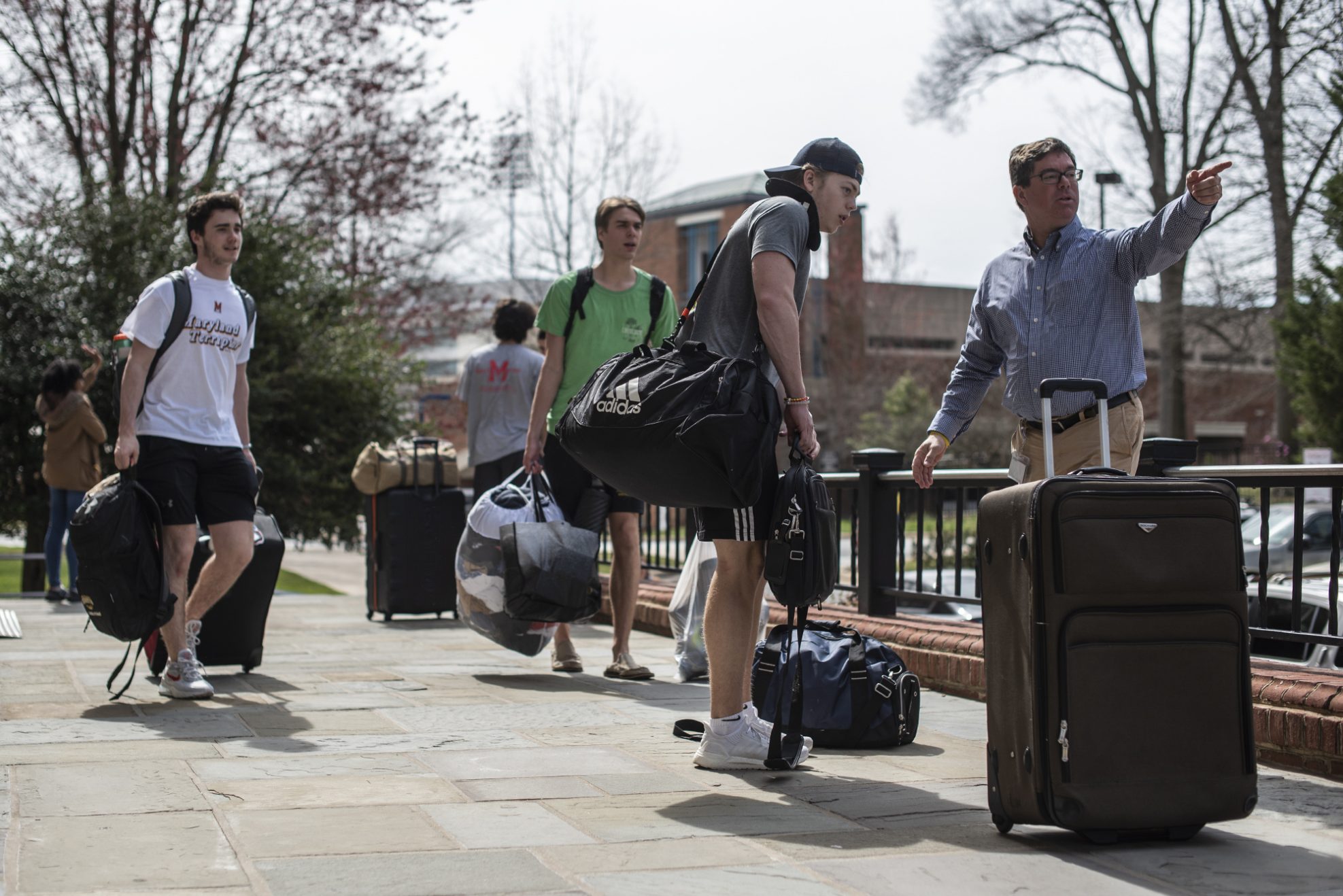Views expressed in opinion columns are the author’s own.
I don’t know if this is just me, but living in College Park makes every day feel like a fresh cocktail of anxiety, panic and frustration about potentially catching or spreading the coronavirus. I mean, as a college student who signed a lease that effectively financially traps me in College Park, pandemic or not, what did I expect?
I came home this week after a potential COVID-19 scare (I luckily dodged that bullet). However, as I write this column from my childhood bedroom, feeling like I’ve reverted back to my high-school self, I’d choose the worry and craziness of College Park over home in an instant. I know my physical health is immeasurably safer at home, where my exposure to COVID-19 is minimal. Yet, I’d rather be in College Park, surrounded by the coronavirus but happy with my friends and focused in a familiar academic environment, than stuck at home.
Regardless of where students are living, this semester has presented them with a new lose-lose decision between their mental and physical health. Students face an unprecedented choice: prioritize their mental health by living in College Park or secure their physical well-being by living at home (which hopefully is nowhere near as COVID-infested as College Park). It’s unfair to ask young, emotionally vulnerable college students to choose between their physical safety and their mental sanity, but it’s where we are.
While I’m choosing to have COVID-scare after COVID-scare in College Park, there are students who chose the exact opposite. For the students who stayed home this semester in fear of the coronavirus, their chances of catching the disease are hopefully lower by not returning to the campus. Living at home is the safest option. Yet for college students used to a certain level of independence that arises from living on campus, spending this semester at home presents its own mental health challenges.
In the best-case scenario, students who remained at home will find healthy ways to cope with the loneliness, FOMO and anxiety of not being on campus, and they’ll have a safe and secure home environment to escape to. In the worst-case scenario, students who may already be struggling with their mental health might find that struggle exacerbated by loneliness and a potentially unsafe home environment. Does all this outweigh the risk of catching COVID-19?
Until I got to campus, I didn’t realize how many other students felt just as I did: anxious about contracting COVID-19, completing coursework and avoiding the callous, unsafe behavior of other students. It’s isolating to see Instagram captions decrying that students are “back and better than ever” when the gratitude of returning to campus is sliced with fear and worry. It was only after I opened up to my friends about how I was feeling that I realized my worries weren’t happening in a vacuum, and that no matter where students live this semester, everyone’s mental health will be impacted. The best thing to do? Talk about it (cliche, but true). Open up to your friends, your family or a mental health professional.
The choice of returning to College Park this semester hasn’t been an easy one for most people. Yet the students who got to choose where they lived this semester are the lucky ones. An absurd amount of students are stuck in leases they signed pre-pandemic, and without a way to break these contracts, they are forced to live in College Park or forgo thousands of dollars for the safety of home. This fall semester is one of expensive, unjust decisions.
There’s no one-size-fits-all solution for the predicament students are dealing with this semester. It’s up to each individual to decide their living situation, and which they value more: their physical safety or mental well-being. Both options present their own challenges. What matters most is finding what’s best for each student — something that provides them with the mental support that they’ll need to battle this semester.
Maya Rosenberg is a junior journalism and public policy major. She can be reached at maya.b.rosenberg@gmail.com.



